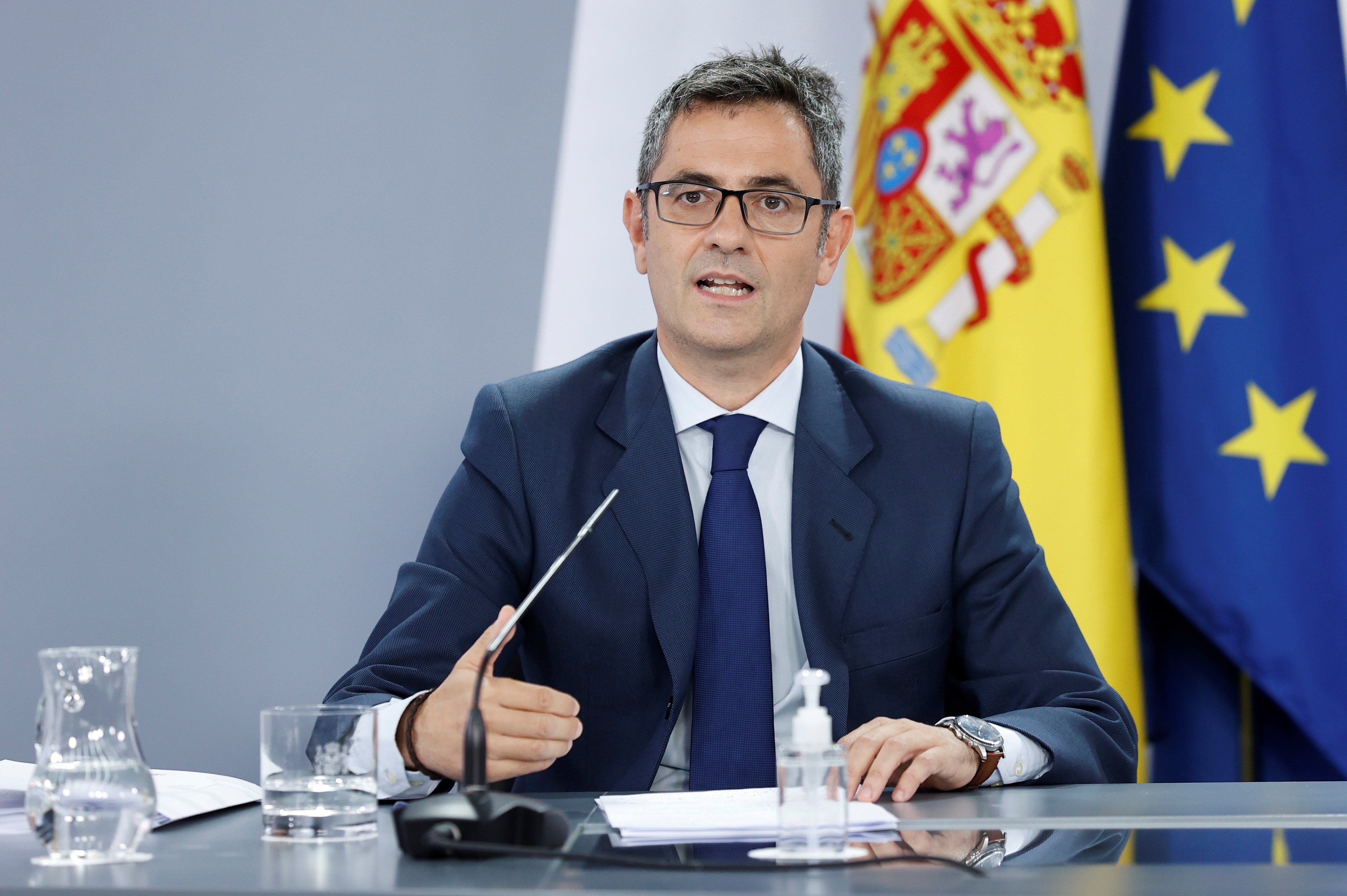The reform of the Spanish Penal Code in connection with the crimes of rebellion and sedition is no longer a priority for the Spanish government, which does not plan to address it in the next four months. Another promise broken by Pedro Sánchez's executive, which initially pledged to approve the amendment last year, and a slap in the face for human rights bodies such as Council of Europe and Amnesty International, which have demanded the urgent reform of the archaic law.
The delay was anounced by Spanish minister for the prime minister's department, Félix Bolaños, at today's post-cabinet meeting press conference, at which he stressed that the priority of the Spanish government is to fulfill the 50 commitments it made in Brussels with the Economic Recovery Plan. Bolaños reported that before the end of the year, it is planned that 144 regulations will be approved, including new housing, science and labour reform laws. And definitively not the offences of rebellion and sedition, a reform that would favour the criminal situation of the pro-independence political prisoners - who are now released, but under pardons that are partial, conditional and still pending appeals.
Breached promises
"We believe that in these four months it is not a priority to address this amendment to the Penal Code," said the minister, noting that in the future, when future legislative schedules are made, a decision will be made on when to include the reform of the rebellion and sedition offences.
The PSOE-Podemos government's former justice minister, Juan Carlos Campo, promised to approve the reform before 31st December 2020. But it did not arrive and throughout 2021, the Spanish executive has avoided setting a date, although the ministry suggested it would be sooner rather than later. Now the Spanish government has made it clear that it is not a priority, with the Catalan political prisoners now released after the executive agreed to grant pardons to them. However, the Supreme Court is yet decide on appeals against the pardons, and the reform is an argument to take into account.

Spanish government spokesperson Isabel Rodríguez at the press conference after the cabinet meeting / Efe
Warning to Aragonès
With two weeks until another promise is due to be fulfiled - a return to the bilateral dialogue table on the political conflict - the Catalan and Spanish governments are marking positions. Spanish government spokesperson Isabel Rodríguez warned Catalan president Pere Aragonès today that the path to dialogue and reunion "is clearly not to indicate horizons for acheiving independence", after the Catalan leader had stated that he hoped there would be a vote on independence before 2030.
"This is not the way, it is not the way we want to move with Catalonia," said Rodriguez after the weekly meeting of the executive, without specifying when the meeting of the dialogue table will take place or if the Spanish prime minister Pedro Sánchez will even attend. Teams from both governments, the spokesperson explained, are working on this meeting, the date of which could be around the third week of September.
The Catalan government is keeping up pressure on the Spanish executive in this regard: it "does not contemplate" that Sánchez would not take part in the dialogue table meeting, as Catalan government spokesperson Patricia Plaja said today after the Catalan cabinet met.
Main image, the Spanish minister for the prime minister's department, Félix Bolaños / Efe

